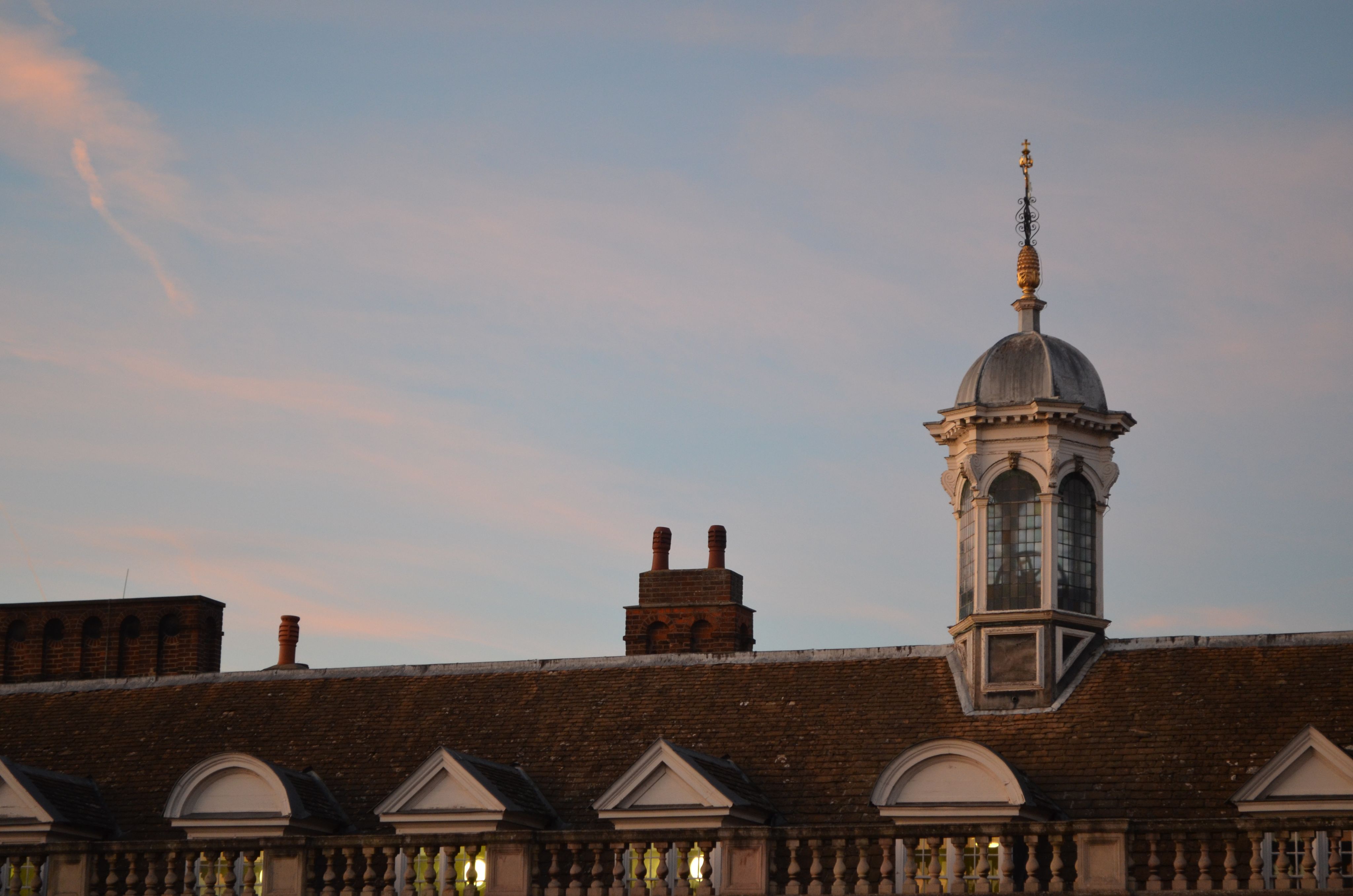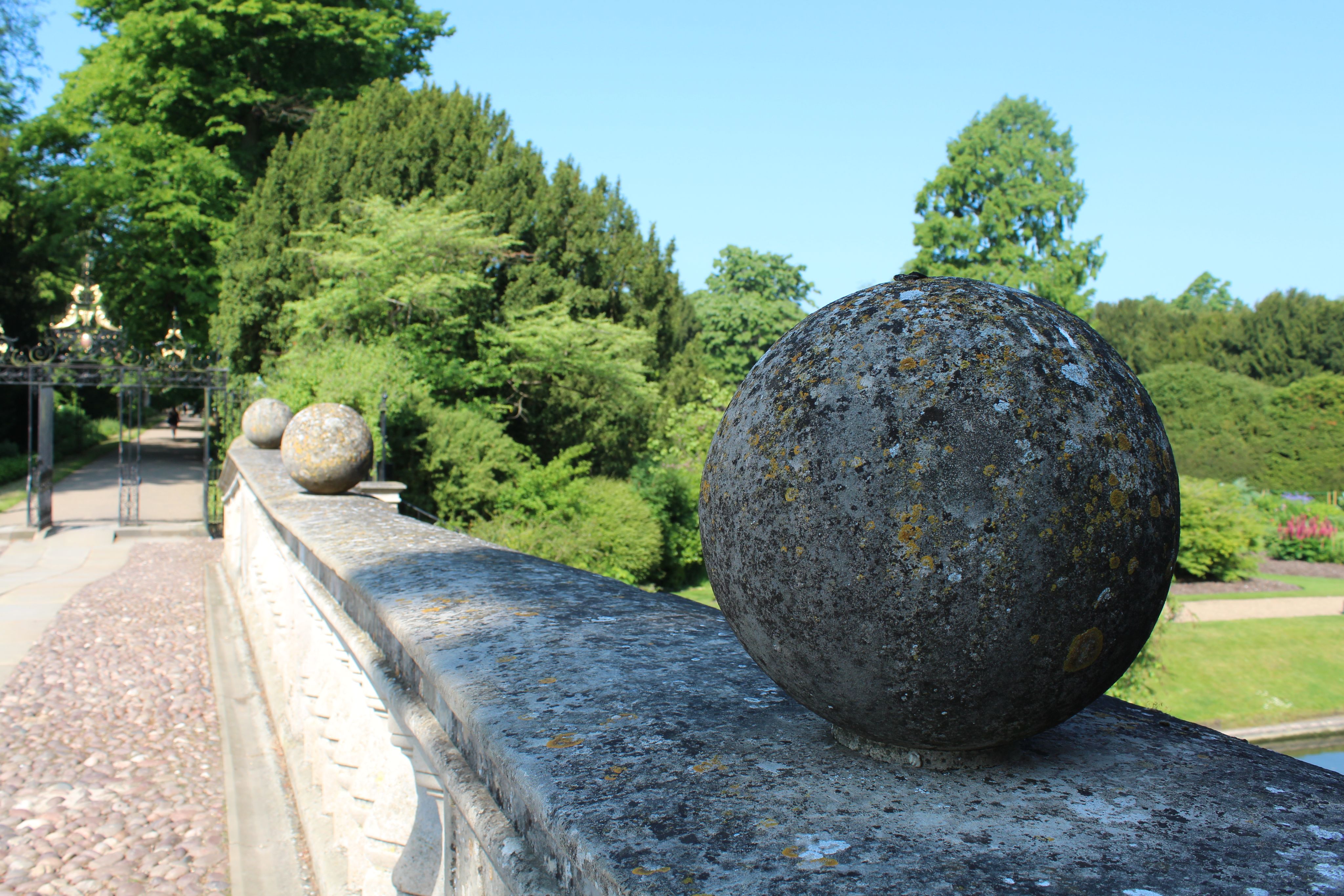Class Notes

Clare in 1952: Recollections of a Freshman
BY GORDON JOHNSTON (1952)
I came up to Clare in October 1952. I travelled by train carrying a suitcase; my heavy luggage went ‘Passenger Luggage in Advance’ for 3 shillings 6 pence an item. It arrived of course not ‘in advance’ but three weeks late, but I had been warned about this.
I enquired about my rooms at the Porters’ Lodge, and was directed across the Backs to Memorial Court. Walking up the gravel path to it, I read the inscription ‘sui memores alios fecere merendo’. I had come up to read Classics, and recognised the quotation from Virgil.
My rooms were on the ground floor of P staircase, a rather gloomy set with bars on the windows. They cost £25 a term, and comprised a bedroom (unheated), sitting room (with coal fire) and a ‘gyp room’ with sink and gas ring. Memorial Court was not wired for power, only for light, so toasters, electric kettles, etc. were banned. I asked my Gyp how much coal I could have; ‘28 buckets a term’, he replied. How long will that last? I asked; ‘depends on when you light the fire’ came his laconic reply.
Basic food was still rationed in 1952, so I went to the Buttery with my ration book, surrendering it when I signed up to dinner in Hall (compulsory) and lunch. It didn’t seem worth coming over to have breakfast of cereal, bread and marmalade in Hall rather than in my rooms. The food was wholesome and adequate – 2 courses at lunch, three for dinner. A visit to Ryder and Amies equipped me (for £6) with a Clare gown, compulsory for lectures, supervisions, and dinner. Clothes were no longer rationed, but scarce and dear. A government-surplus duffel coat (£5) was – still is – a prized possession, as were a Clare scarf and sweater. Cavalry-twill trousers (£6) and a Clare blazer came later.
I looked round at my fellow Freshmen; a minority like myself had come from school, aged 18 or 19. The majority were older, having done their compulsory 2-years' National Service before coming up. They had maturity and self-assurance, reinforced in most cases by service as commissioned officers.
These mature, confident men perhaps naturally took the lead. I took little part in college activities, but realised I had to work hard. I found in my pigeonhole a note from my Tutor, NGL Hammond, suggesting books to read and lectures to attend, and saying he would offer a date to discuss my work within a week. So I got down to ‘reading for a degree’, and also sampled the lectures on offer at Mill Lane.
Hammond proved an exacting if inspiring supervisor. We were required to come once a week to undertake ‘unseen’ translation in the library, and to submit a weekly essay or composition which was returned with queries, and then discussed in face-to-face tutorials. I discovered the University Library as a convenient and warm place to read – and economise on coal.
My plan in 1952 was to become a regular soldier, so I sought out the OTC (their Mess was at Quayside, by Magdalene Bridge), and took the oath to obey Queen Elizabeth II, her heirs and successors. I was also a keen rifle shot, so joined the CURA. The association needed a Corps member in uniform to drive a truck laden with rifles and ammunition to and from the range off the Barton Road. This earned me 2 shillings and 6 pence each visit. When there were severe floods in February 1953, I was asked if I could drive a lorry, laden with relief supplies, to help. I had never driven a lorry before, but all went off well.
The Queen’s coronation was fixed for 2 June 1953; my assiduous attendance at ‘the Corps’ led to me being selected as one of two cadets to represent the Cambridge OTC in the Coronation Procession and to be awarded with a coronation medal.
I went to the May Ball and finished the academic year with two weeks attached to an armoured regiment in Germany. An exciting first year for a 19-year-old but how different from 2022!

Ian McDonald (1951)
It is nearly 70 years since I came down from Clare. I find it extraordinary and moving that the College after all this time still remembers and cares enough to find the time to send a card wishing me well on my 90th birthday ! Thank you indeed -- it is truly appreciated. After all this time I have vivid and the best of memories of the time I spent at the College.
Earlier this year my latest book of poetry -- my 30th book -- was published in England. During a long life I became a Fellow of the Royal Society of Literature, captained the West Indies Davis Cup lawn tennis team and ended a 52-year career in the West Indian sugar industry as CEO of the Sugar Association of the Caribbean -- so I am satisfied that my post-Clare life will not have disappointed the College.
I thank you for your good wishes on my 90th birthday and in turn wish Clare all the very best as it continues to contribute outstandingly to what is best in the world.
Michael Seymour (1960)
Michael Seymour (1960) was selected to represent Great Britain in the Munoz Trophy, a Real Tennis international Tournament at Over-80s level held in Paris between the other Real Tennis nations, France, Australia and the United States. He also played in the World Masters Championships, also at Over-80s level in Paris, where he reached the final in both the singles and the doubles.
Lawrence Reddaway (1962)
Living actively, still married to Virginia, in an apartment in an excellent new ‘retirement village’ in suburban Melbourne in Australia. Currently undergoing chemotherapy in response to stage 4 bowel cancer; but not suffering unduly!
Dennis Sherwood (1967)
Last summer/autumn, I had four books published, and one of them – Creativity for Scientists and Engineers – has just won the ‘Specialist Business Book’ category at the 2023 Business Book Awards.
It’s quite unusual for a book with a title like that to win a major business book award; also, there are many books on creativity, almost all of which are targeted at ‘managers’ or those in the so-called ‘creative industries’. I think this is the only one targeted on scientists and engineers, speaking their language and presenting rigorous and disciplined processes. And as you know, I have been interested in this for some time…
Mohammed Amin (1969)
As an existing Trustee of The National Muslim War Memorial Trust, I was chosen by fellow Trustees to be Chairman following the sad death of founding Chairman Lord Sheikh. It aims to build a Muslim war memorial in London.
I stepped down from the Council of the British Go Association after steering its incorporation into a company limited by guarantee.
Stephen Banfield (1969)
About 20 of those matriculating in 1975 met for dinner at the Lansdowne Club in London in February. This was the first of these very enjoyable annual events to have been possible since the pandemic, and all being well there will be another informal dinner early in 2024. All who matriculated in 1975 are welcome to join us, and you are very welcome to bring your partner as well.
Melanie Davie, (1973)
I was promoted to Professor of Reproductive Medicine, University College London, in 2022. I continue to work full time as a clinician and academic, and my other love is my grandson, born during lockdown.
Glyn Jones (1973)
Completed a 3-year assignment in Mexico City in mid-2019 and finally retired. Sad to leave Mexico as such a wonderful country but not missing the work. Moved back to Malaysia and married my long-term partner Mei Ling in Kuala Lumpur in July 2022. Still travelling extensively, playing golf and even restarted scuba diving.
Jane Purdon (1985)
New book published – The Homecoming – the Lionesses and Beyond. It tells my story as a woman in football and the story of the Lionesses’ glorious victory in the Euros last summer. Clare played a role in my journey as it was where I first played the beautiful game – and indeed I set up the first Clare women’s football team in 1985. I recently bumped into the Chairman of Cambridge United at the EFL League One play-off final and told him how Bentley Road had played a major role in my life!
Kate Gould (1991)
Very pleased to see London CLT's eleven permanently affordable homes in Lewisham completed and occupied, after working on the project as in-house legal adviser since 2016.
Anusha Gunasekera (1996)
Anusha read Natural Sciences at Clare, followed by a PhD in malarial molecular biology at Harvard University, USA.
My post-doctoral fellowship at the Harvard School of Public Health, USA. was conducted partly in Sri Lanka in collaboration with the Malaria Research Unit, University of Colombo. I joined Sanaria Inc in 2006, a biotechnology firm at the forefront of malarial vaccinology, where I'm currently a Senior Advisor, Regulatory Affairs. For over a decade now, I have been working on whole parasite vaccine development, you can read more about my research here.
